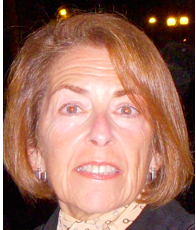Presentation Announcements by Ruth Lijtmaer (USA)
Ruptures in the Continuity of the Self: Where Do I Belong? Immigration as Trauma
(2023). Indiana Society for Psychoanalytic Thought, online, September 11.
Immigration, refugee status and exile can qualify as social traumas. Whatever the circumstances of migration, these life changes entail periods of disorganization, pain, and frustration and may produce a catastrophic sense of loss. The migrating individuals are deprived of a secure holding environment to continue their lives; this feeling of homelessness constitutes an emotional self-state. Looking for a safe place to live but finding that countries do not want them, they are the “unwelcome child.” Common psychic experiences in the process of migration are mourning, to allow going-on-being, and nostalgia, which helps the immigrant defend against the aggression resulting from current frustrations. This presentation focuses on the psychodynamic processes of immigration and their impact in therapeutic work.
What We Used Not to Talk about in the Consulting Room, and Now We are Doing It
(2023). International Forum for Psychoanalytic Education, Pasadena, California, USA, October 26-28.
Our patients rarely choose to discuss ongoing political events. The 9/11 terrorist attacks were the exception that proved this norm. The United States’ 2016 election made many patients want to talk about how they felt and what they thought about the new President: his image, his narcissism and his ideas. With other patients, we experience their bias, in the form of microaggressions and overly prejudicial statements. The analyst’s political views of issues like immigration, sexual orientation, social class, climate change, religion, and other issues have the potential to affect his/her emotional attitude and listening capacity. How can we be better at admitting into the analytic discourse and talking about patients’ political allegiances, whether similar to ours or not? To recognize the political and social dimensions of human suffering as expressed in differences in class, race, gender, and ethnicity is not to politicize these issues; it is to realize that they are inherently political as well as psychological and social.
Silence, Ghosts and Secrets: Individual and Social Implications
(2023). The Institute of Contemporary Psychoanalysis–Los Angeles, online, November 11.
The space between violence and trauma is dangerous silence. Time, space and history collide. Silence intensifies the impact of trauma, and trauma that goes unspoken, un-witnessed and unclaimed produces more trauma to self and others. Silence can be associated with a ghost, as a metaphorical tool. Ghosts, like the memory of trauma, are both “there” and “not there” at the same moment, making them ripe for the same “fact or fiction” scrutiny applied to massive trauma: disbelief and outright denial. They are the keeper of secrets, and they are the manifestations of something gone wrong. They linger on in the living for generations.
 Ruth Lijtmaer, Ph.D.
Ruth Lijtmaer, Ph.D.
Ridgewood, New Jersey, USA
Email Ruth Lijtmaer

